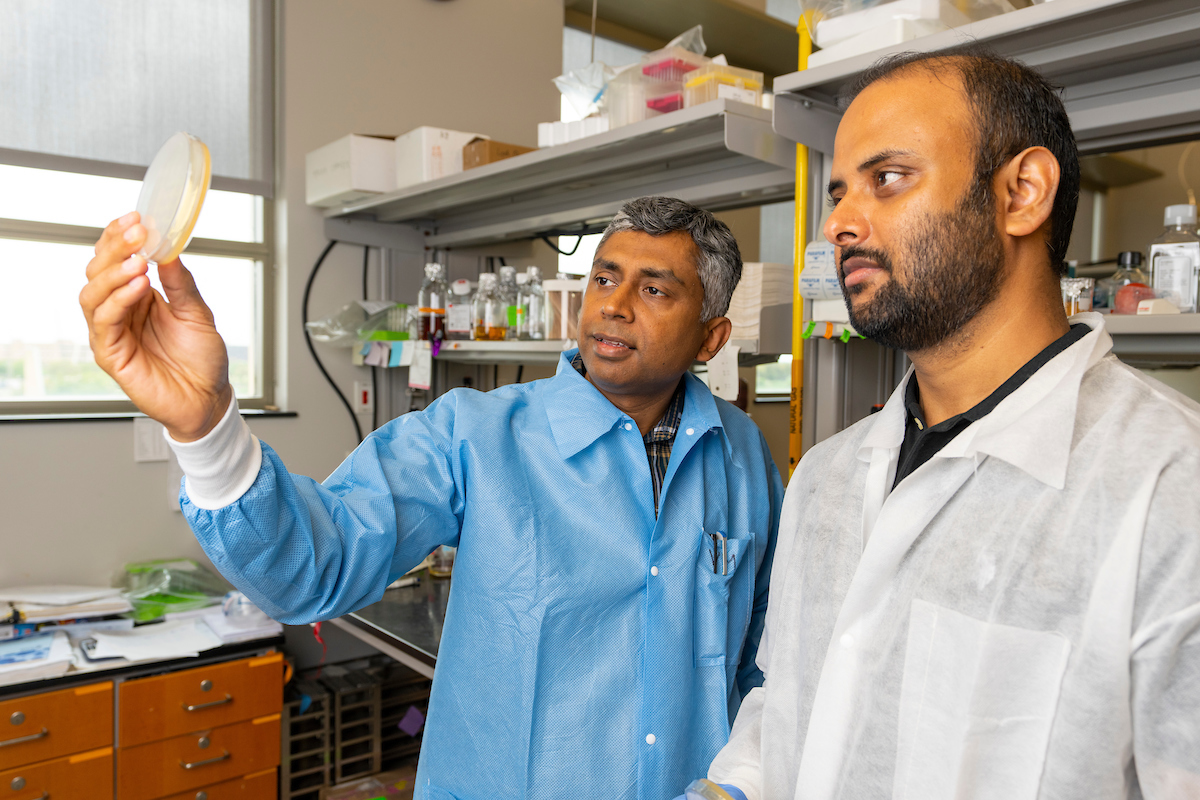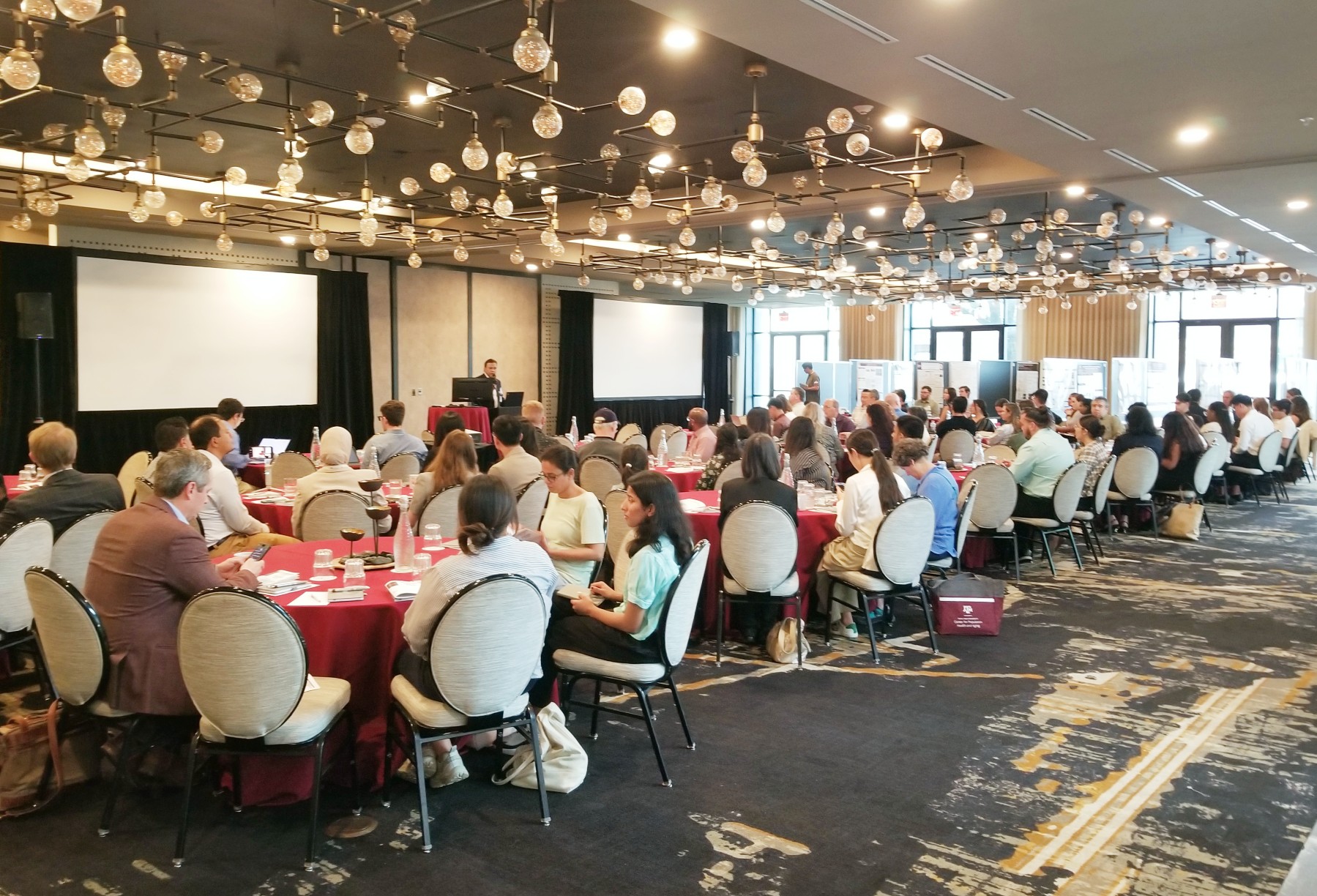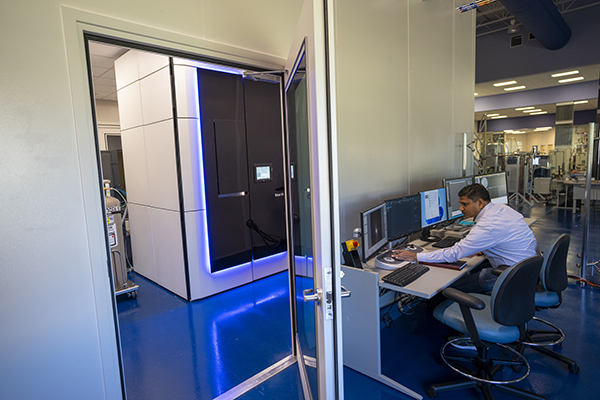Texas Well Owner Network teaming up with Healthy South Texas
Collaboration to focus on well water screening in Brooks, Duval, Jim Hogg, Starr and Webb counties
Writer: Paul Schattenberg, 210-859-5752, [email protected]
Contact: Diane Boellstorff, 979-458-3562, [email protected]
John Smith, 979-845-2761, [email protected]
COLLEGE STATION — The Texas Well Owner Network will present water well screenings in August for Brooks, Duval, Jim Hogg, Starr and Webb counties to give residents the opportunity to have their well water screened.

The screenings are presented by the Texas A&M AgriLife Extension Service offices in these counties in collaboration with the Texas Water Resources Institute and Healthy South Texas.
“Private water wells should be tested annually,” said Dr. Diane Boellstorff AgriLife Extension water resource specialist, College Station. “It is very important that only sampling bags and bottles from their respective AgriLife Extension office be used and all instructions for proper sampling are followed to ensure accurate results.”
The screenings will be AgriLife Extension offices in the following counties at these times and locations:
– In Brooks County on Aug. 8 from 8:30–10 a.m., 219 Calixto Mora Ave. in Falfurrias. A follow-up meeting to explain screening results will be held at 6 p.m. Aug. 9 at the same location.
– In Jim Hogg County on Aug. 8 from 8:30–10 a.m., 201 N. Oak St., Suite 9, in Hebbronville. A meeting explaining screening results will be held at 6 p.m. Aug. 10 at the First National Bank, 305 N. Smith Ave. in Hebbronville.
– In Webb County on Aug. 8 from 8:30–10 a.m., 7209 E. Saunders St., Suite 5, in Laredo. A meeting explaining screening results will be held at 1:30 p.m. Aug. 10 at the Bruni Community Center, 303 E. 12th St., in Bruni.
– In Starr County on Aug. 9 from 8:30–10 a.m., 500 N. Britton Ave. in Rio Grande City. A meeting explaining screening results will be held at 1 p.m. Aug. 11 at the Abel Gonzalez Community Center, 5101 Farm-to-Market Road 1017 in San Isidro.
– In Duval County on Aug. 10 from 8:30–10 a.m., 131 W. Main St. in Benavides. A meeting explaining screening results will be held at 6 p.m. Aug. 11 at the Benavides Civic Center.
For more information for the Brooks County screening, call 361-325-4402; for Duval County, call 361-256-4591; for Jim Hogg County, call 361-527-3737; for Starr County, call 956-487-2306; and for Webb County, call 956-523-5290.
Samples will be screened for common contaminants, including E. coli bacteria, nitrates and high salinity. In addition, if the water is used as a drinking water source, the samples also will be screened for arsenic.
Groundwater in these counties can contain arsenic concentrations exceeding water quality standards, Boellstorff said. Long-term consumption of arsenic in water is associated with diabetes and increases the risk of skin cancer and cancer in the liver, bladder and lungs. In addition, chronic exposure to arsenic may lead to gastrointestinal irritation and cardiovascular disease.
Boellstorff said the presence of E. coli bacteria in water indicates that waste from humans or warm-blooded animals may have contaminated the water. Water contaminated with E. coli bacteria is more likely to also have pathogens present that can cause diarrhea, cramps, nausea or other symptoms.
“Water with nitrate nitrogen at levels of 10 parts per million is considered unsafe for human consumption,” said John Smith, AgriLife Extension program specialist, College Station. “These nitrate levels above 10 parts per million can disrupt the ability of blood to carry oxygen throughout the body, resulting in a condition called methemoglobinemia. Infants less than 6 months of age and young livestock are most susceptible.”
Salinity as measured by total dissolved solids will also be determined for each sample. Water with high levels may leave deposits and have a salty taste, and using water with high levels for irrigation may damage soil or plants.
Boellstorff said it is extremely important for those submitting samples to be at the meeting to receive results, learn corrective measures for identified problems and improve understanding of private well management.
To learn more about programs offered through the Texas Well Owner Network or to find additional publications and resources, go to http://twon.tamu.edu.
Support for the Texas Well Owner Network program is provided through Clean Water Act nonpoint source funding from the Texas State Soil and Water Conservation Board and the U.S. Environmental Protection Agency and the Healthy South Texas initiative.





